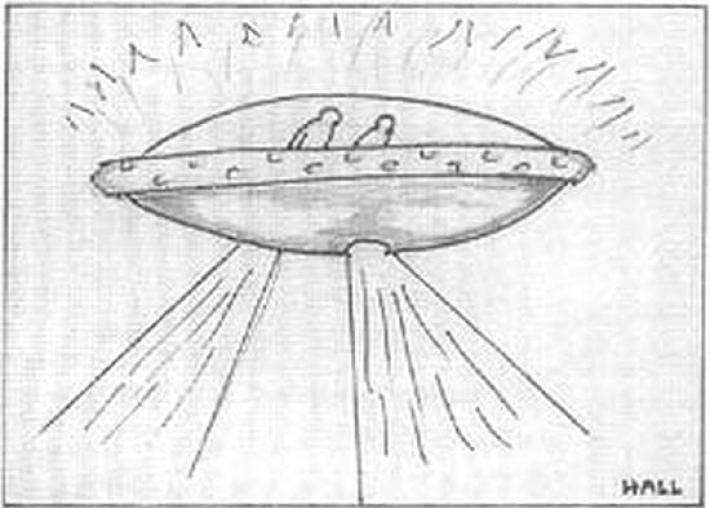UFOs(1) come in all shapes and sizes, though the flying saucer seems to be the favorite type, at least in popular culture. But one type of alleged alien craft that keeps cropping up in reports of sightings is something called the Dyad UFO “Scout Craft.”
The Scout Craft
Richard H. Hall describes(2) these crafts and how they are alleged to behave:
“A striking pattern of reports has emerged describing what appears to be a standard model UFO, of intermediate size between the small possibly remote-controlled—discs and the often-reported 35-40 foot (10-12 meter) in diameter or large models.
Dating back to the 1950s, many witnesses have described discs (often Saturn-shaped) with transparent domes through which two small humanoid beings are visible.
“Although size estimates vary, most appear to be somewhere between 15 and 30 feet (4.5 and 9 meters) in diameter. The proportional size of beings to craft suggests a small two-seater ‘scout’ vehicle with barely enough space to accommodate the two-entity crew. The reports imply a mission-oriented purpose.
Scout Craft Sightings
Hall goes on to describe accounts of sightings of these crafts, which seem to resemble the flying cars from “The Jetsons,” between the late 1950s to the late 1970s.
The idea that aliens doing reconnaissance on the Earth’s surface using a craft that is easily spotted from the ground and involves people getting a good look at the pilot and co-pilot is not something that stands up to just a modicum of examination.
In times past, modern militaries conducted aerial reconnaissance using piloted aircraft. However, for the past two or so decades, the preferred method of searching out unfriendly terrain has consisted of using unpiloted drones.
Insect Drones?
It seems strange that aliens capable of crossing interstellar distances just to take an interest in a relatively primitive civilization would use a retro method of reconnaissance. One would think that aliens would remain in space, safe in stealth spacecraft, and then send swarms of drones into the Earth’s atmosphere to ferret out the secrets of our planet without getting spotted by the Earthlings.
The next generation of reconnaissance drones is so-called insect drones(4), with the size and characteristics of bees or mosquitoes. These drones could be sent in swarms to examine a wide area, say a battlefield or a disaster area. In theory, they could sneak inside buildings undetected and spy on meetings and other activities that could not be perceived from the outside air.
If aliens really are visiting Earth clandestinely, it is very unlikely that we would know they were doing so. Modern stealth technology is quite advanced, and alien civilization centuries in advance of ours would likely have access to even more advanced techniques.
References & Image Credits:
(1) http://www.topsecretwriters.com/2014/11/dr-allen-hyneks-classifications-ufos-alien-encounters/
(2) http://www.nicap.org/dyad.htm
(3) http://science.howstuffworks.com/predator.htm
(4) http://www.cdc.gov/acute-flaccid-myelitis/
(5) http://www.popsci.com/article/technology/rise-insect-drones
Originally published on TopSecretWriters.com
